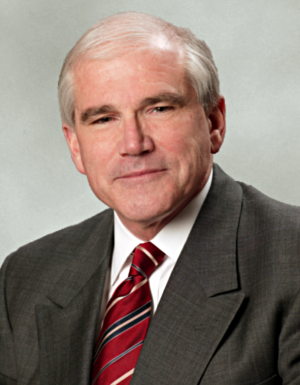Three seasoned Ottawa lawyers will act as counsel to the commissioner of the inquiry looking into the collapse of an Elliot Lake, Ont., shopping mall that claimed the lives of two people and injured 20 others last month.

Justice Paul Bélanger, commissioner of the Elliot Lake inquiry, announced yesterday that Peter K. Doody, Bruce Carr-Harris, and Mark Wallace will serve as the three lead counsel. Doody and Carr-Harris are partners with the Ottawa office of Borden Ladner Gervais LLP. Wallace is a partner at the Ottawa criminal law firm Carroll & Wallace.
The independent public inquiry into the collapse of the Algo Centre Mall will look at the cause of the collapse and the rescue effort. Lucie Aylwin, 37, and Doloris Perizzolo, 74, died and 20 other people were injured after part of the mall’s roof crashed into the shopping centre on June 23.
“We’re to find out how the collapse happened and why, then look at the history of it compared to the regulatory structure and policies that are supposed to govern those kind of structures,” says Carr-Harris who will serve as the commission spokesman.
The three lawyers will also be tasked will examining the rescue effort and how it measured up against standards and make any recommendations they feel necessary.
“The challenge in a construction collapse like this is to find out what happened. We really don’t know what happened, all we have seen is what’s been in the media. There is also the concern about the rescue mission so we’re going to have to look at that too,” he says.
Carr-Harris points out there have been other collapses like the one in Elliot Lake in other parts of Canada. Almost 20 years ago a rooftop-parking garage collapsed in British Columbia that became the subject of an inquiry. The roof collapsed the day the mall opened.
“There has been a lot discussed about the issue of parking garages and their structural strength in the construction industry over the last 20 to 30 years as people began to realize you can’t just build these parking garages and leave them alone,” he says.
Carr-Harris is no stranger to large-scale inquiries, having served on the inquries into tainted blood, the Somalia affair, and the wrongful conviction of Guy-Paul Morin.
“I can’t say I didn’t know what I was getting into,” says Carr-Harris who says the first step is to gather the facts of the incident.
He practises civil litigation with an emphasis on public law, defamation, construction litigation, product liability, commercial litigation, professional liability, intellectual property and commercial litigation, including injunctions, insurance litigation, and franchise disputes. His dispute resolution practice includes domestic and international arbitrations. He is also an adjunct professor at the University of Ottawa Common Law Faculty.
It is expected the hearings will take place entirely in Elliot Lake. The terms of reference of the inquiry indicate it could up to 18 months, if needed. The commissioner and staff will make an initial visit to Elliot Lake in mid-August to meet with officials and the public.
“Given the nature of the tragedy and intense interest of the public in Elliot Lake the commissioner’s view is that would be the most appropriate,” he says.
Doody has expertise in public law, administrative law, and commercial litigation. He appeared as counsel to Jean Chrétien at the Gomery inquiry and counsel to the correctional investigator at the Arbour Inquiry into events at the at the Prison for Women in Kingston, Ont.
Wallace’s practice includes criminal law and administrative law in connection with police discipline matters. He has served as counsel to parties with standing at the Arar Inquiry and the Cornwall Public Inquiry. He has also represented the Canadian Forces provost marshall before the Military Police Complaints Commission during the public interest hearings concerning the transfer of Afghan detainees by the Canadian Forces during the conflict in Afghanistan.
Bélanger was appointed Commissioner on July 20. He has served as senior judge for Eastern Ontario, regional senior justice of the Ontario Court of Justice for the East Region and at various times during his judicial career was the Eastern Ontario representative of the Provincial Court Judges’ Association. In 2002, he was appointed to be the chair of the Judicial Ethics Advisory Committee of the Court, a position he held until his retirement to part-time service on September 30, 2008.

 Justice Paul Bélanger, commissioner of the Elliot Lake inquiry, announced yesterday that Peter K. Doody, Bruce Carr-Harris, and Mark Wallace will serve as the three lead counsel. Doody and Carr-Harris are partners with the Ottawa office of Borden Ladner Gervais LLP. Wallace is a partner at the Ottawa criminal law firm Carroll & Wallace.
Justice Paul Bélanger, commissioner of the Elliot Lake inquiry, announced yesterday that Peter K. Doody, Bruce Carr-Harris, and Mark Wallace will serve as the three lead counsel. Doody and Carr-Harris are partners with the Ottawa office of Borden Ladner Gervais LLP. Wallace is a partner at the Ottawa criminal law firm Carroll & Wallace.